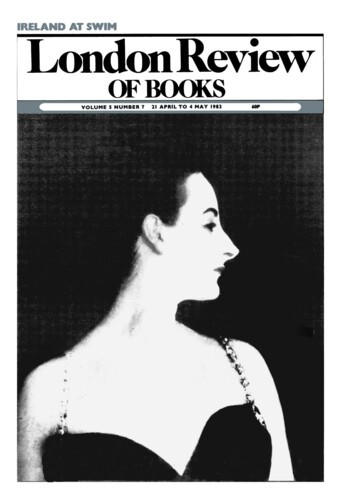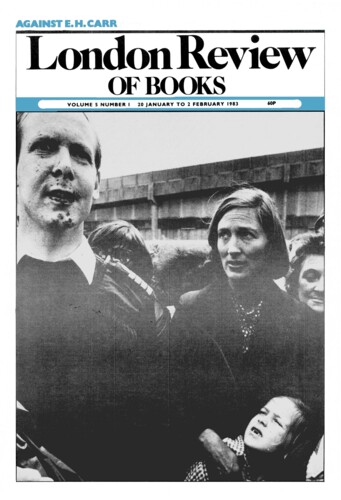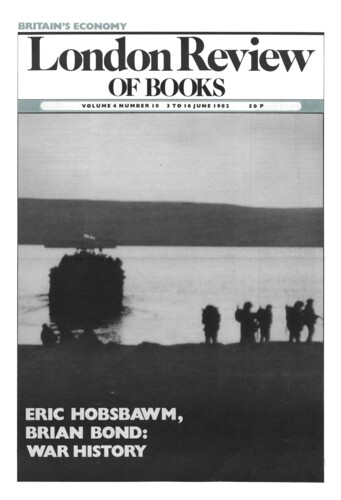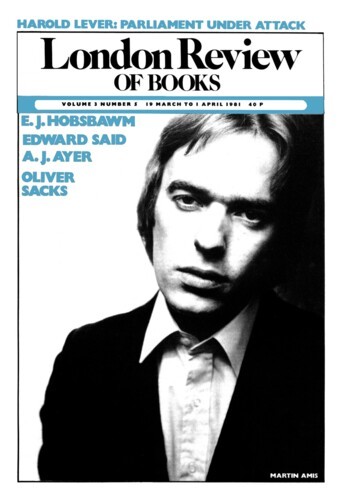Before the Fall
Eric Hobsbawm, 21 April 1983
From TV studios to Trinity College, Cambridge, who can resist the historical fascination of the decades before 1914? They are sufficiently ‘contemporary’ for their landscape to be recognisable even in 1983. We are already in a world of cars, aeroplanes, radio communication, movies, black music, abstract art, quantum theory and petro-diplomacy. At the same time, they are almost inconceivably remote, bathed in the light of those lamps which, as Sir Edward Grey said in August 1914, were going out all over Europe, not to be lit again. Norman Stone is right to begin his Europe Transformed with this hackneyed but still troubling quotation, though he is wise enough to avoid sentimentalising anera when the vast majority of Europeans lived lives which, despite modest improvements, were, by our standards, poverty-stricken, primitive and hard. The lights which went out in 1914 were not to leave the whole world in darkness. Nevertheless, if the decades before the First World War anticipate the scientific and technical triumphs, the massive material progress of the 20th century, they also anticipate its worries, its dramas and catastrophes, and its encroaching and eventually universal moral barbarism. Indeed, they incubated all these. War and revolution, and all they were to bring, emerged from the Belle Epoque, not by a series of accidents or missed opportunities, but as its inevitable product.




